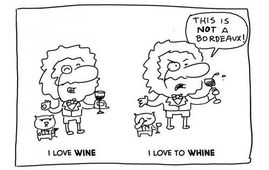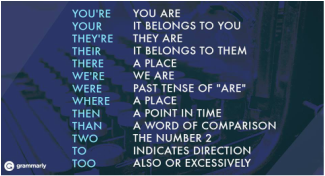Eye had bean out four the day two the see side for a sale. Wee drove along the rode in vial whether and sore a buoy practicing marshall arts write their in the would. He wood have bean dew a meddle, but know one new wear he lived.
Wow! That is pretty difficult to read. I know it’s extreme, but it gives a good example of how many words in the English language are pronounced the same as another word but differ in meaning. Otherwise known as homophones (literally “same sound”) - every school child’s nightmare.
Who doesn’t remember trying to work out the difference between there and their, or here and hear? When homophones come up in spelling tests although you can try to help by saying “Here – as in over here” or “Their – as in it is their house”, the only way really is to learn them.
I guess it’s just another one of those idiosyncrasies of our language.
Wow! That is pretty difficult to read. I know it’s extreme, but it gives a good example of how many words in the English language are pronounced the same as another word but differ in meaning. Otherwise known as homophones (literally “same sound”) - every school child’s nightmare.
Who doesn’t remember trying to work out the difference between there and their, or here and hear? When homophones come up in spelling tests although you can try to help by saying “Here – as in over here” or “Their – as in it is their house”, the only way really is to learn them.
I guess it’s just another one of those idiosyncrasies of our language.
To finish off, if you have the time and inclination, here’s something for you to get your tongue around, courtesy of 9gag.com (and my friend Chris Renehan who tagged it to me on Facebook):
http://9gag.com/gag/aZNqge0?ref=fbp
http://9gag.com/gag/aZNqge0?ref=fbp




